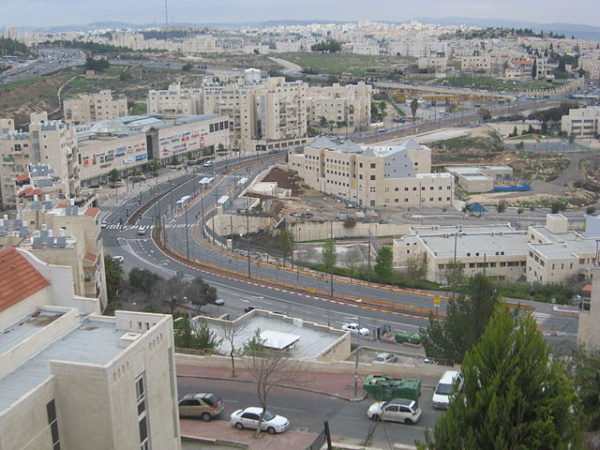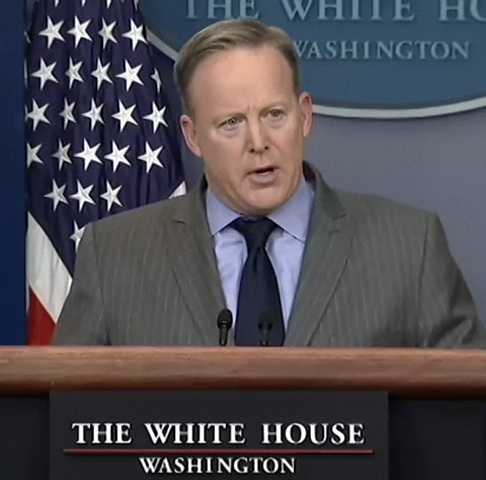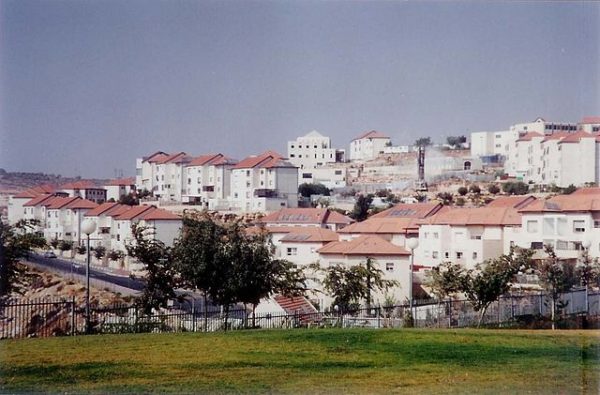Emboldened by Donald Trump’s election as America’s 45th president, Israeli Prime Minister Benjamin Netanyahu is flaunting his true colours as an arch nationalist bent on expanding Israel’s borders at the expense of peace with the Palestinians through a two-state solution.
No longer constrained by Barack Obama’s critique of settlement construction, and heartened by the Trump administration’s apparently tolerant attitude toward settlements, Netanyahu feels free at last to consolidate Israel’s grip over the West Bank without having to worry about an adverse American reaction.
Since Trump’s inauguration in Washington, D.C. on January 20, the Israeli government has issued a series of bold pronouncements that steer Israel further away from the prospect of a two-state solution, to which Netanyahu has paid only lip service and his cabinet ministers have categorically rejected as a non-starter.
On January 22, about a month after the United Nations Security Council passed a unanimous resolution denouncing Israeli settlements in the West Bank and declaring them illegal under international law, Jerusalem’s planning board authorized the construction of 560 new homes in Pisgat Zeev, Ramot and Ramat Shlomo. These neighbourhoods lie in eastern Jerusalem, which Israel annexed in 1967.

The deputy mayor of Jerusalem, Meir Turjeman, justified the decision on the grounds that the Trump administration would quietly accept it. As he put it, “Trump is the one who declared … there would be no disputes with Israeli on building in Jerusalem.” Disengenuously, he added, I’m simply implementing his philosophy.”
Netanyahu, on the same day, told his ministers he intended to accelerate construction in eastern Jerusalem — claimed by the Palestinians as the capital of a future Palestinian state — and eventually extend Israeli sovereignty over Jewish settlements in the West Bank, including Maale Adumim, one of the largest ones.
He also made a reference to Palestinian statehood. “What I’m willing to give the Palestinians,” he said, “is not exactly a state with full authority, rather a state minus.” He did not elaborate, but a Palestinian leader immediately compared his vague proposal to a South African-style Bantustan scheme.
For most of his political career, Netanyahu opposed Palestinian statehood, but in 2009, shortly after his reelection, he came out in favour of a demilitarized Palestinian state on condition that the Palestinians recognize Israel as a Jewish state. Netanyahu’s acceptance of Palestinian statehood may have been a moot point, since his right-wing Likud Party is against it in principle.

On January 24, the Israeli government approved the construction of 2,500 housing units in West Bank settlement blocs Israel intends to keep. Tellingly enough, Trump’s press secretary, Sean Spicer, neither approved nor condemned the announcement, saying the issue would be discussed when Netanyahu and Trump confer at the White House on February 15 in their first official meeting. Previous U.S. presidents issued condemnations of such announcements.
On February 1, as some 3,000 Israeli police officers and soldiers removed 40 families from the unauthorized Amona outpost in compliance with a Supreme Court order, Israel issued two further announcements, both of which underscored its determination to maintain control over the West Bank.
First, Israel approved the construction of an additional 3,000 housing units in the West Bank.
Second, Netanyahu disclosed that residents of Amona would be moved to a new settlement, which would be the first to be established in the West Bank in about 25 years. Since the 1990s, under U.S. pressure, Israel has confined itself to expanding existing settlements rather than building new ones.
Next week, the Israeli Knesset is likely to pass legislation retroactively legalizing the network of unauthorized outposts that have been built on private Palestinian land in the past two decades.
At least two of Netanyahu’s ministers have urged him to take bolder steps to assert Israel’s authority in the West Bank.
Proceeding from the assumption that the Trump presidency ushers in “a new era” in Israel’s relationship with the United States, Education Minister Naftali Bennett, the leader of the Jewish Home Party, has called for the annexation of Area C, where Jewish settlements are located. At present, Israel exercises military and civilian control over Area C, which encompasses about 60 percent of the West Bank.

Bennett’s ideological bedfellow, Transportation Minister Yisrael Katz, a member of Netanyahu’s Likud Party, has called for the annexation of settlements near Jerusalem. Under his plan, Israel would annex settlements such as Maale Adumim and Beitar Ilit and incorporate them into the boundaries of greater Jerusalem. “This is a needed first diplomatic step in the era of President Trump,” he wrote on his Facebook page.

Katz’s like-minded colleague, Justice Minister Ayelet Shaked, believes that Israel should seize the day. “We need to tell the American administration what we want and not wait for orders from it,” she said.
Ofir Akunis, a Likud parliamentarian who supports the annexation of Maale Adumim, agrees with Shaked. “There is a giant change in the policy of the U.S., and we have to take that change into account for our own benefit.”

One of Netanyahu’s closest allies, Regional Cooperation Minister Tzachi Hanegbi, has deviated from Likud dogma, having warned that the annexation of parts of the West Bank would be a “disaster” for Israel.

Israel could become a binational state, a secular state of its citizens, or it could morph into an undemocratic Jewish state which denies civic and political rights to the Palestinians living under its rule in the West Bank.
In his last speech on the Arab-Israeli dispute, on January 17, John Kerry, the previous U.S. secretary of state, alluded to this bleak scenario. Accusing Israel of unilaterally “eating up” the West Bank for its own exclusive use, Kerry described Israel’s settlement policies there as “a recipe for a permanent (Palestinian) insurgency” and “permanent conflict.”
Kerry is right, of course. But now that he and Obama are gone, and Trump is ensconced in the White House, Netanyahu may well be better positioned to create yet more new “facts on the ground” and thereby transform the dynamics of the Arab-Israeli conflict.
Needless to say, Netanyahu’s calculations are contingent on Trump being true to his campaign promises. If he backtracks, however, all bets will be off. On February 2, following a conversation with King Abdullah II of Jordan, Trump appears to have reversed his position. As Spicer said, “While we don’t believe the existence of settlements is an impediment to peace, the construction of new settlements or the expansion of existing settlements beyond their current borders may not be helpful.”
